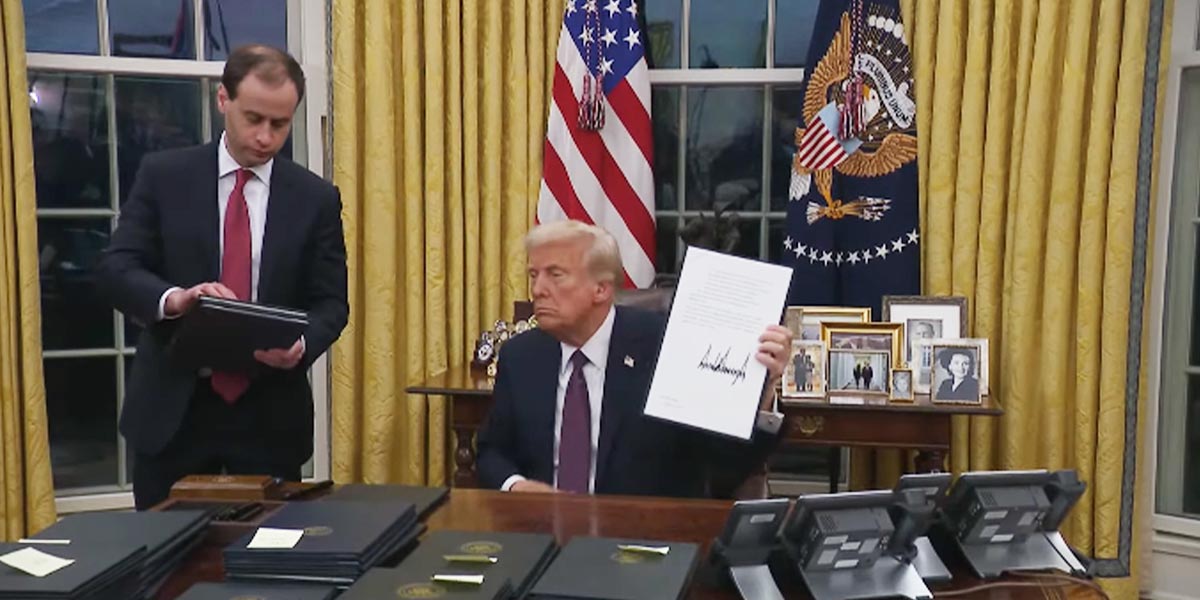On Thursday, President Donald Trump signed a presidential memorandum charting plans for reciprocal tariffs on foreign nations.
Under the plan, Trump said, other nations’ non-tariff policies will be deemed unfair trade practices, warranting a retaliatory tariff in response. Those policies include value-added taxes (VATS), and other practices that the U.S. Trade Representative Office saw as unfair trade limitations.
Trump added that foreign countries would not be allowed to export their goods to the U.S. through another nation, while also hinted that additional tariffs, including levies on car imports, will be next on the line.
The U.S. president claims that these measures are to level the playing field. Meanwhile, the nonpartisan Tax Foundation noted in Wednesday’s report that Trump has mistakenly blamed VATs for a lack of U.S. competitiveness in Europe.
The reciprocal tariffs will not be implemented immediately. He appointed his nominee for Secretary of Commerce, Howard Lutnick, for further study to determine appropriate tariffs for each country, which is expected to be completed by April 1.
In Trump’s post on Truth Social, the plan will affect other countries that employ measures including subsidies, non-monetary tariffs, and trade barriers.
The reciprocal tariffs will be imposed on top of existing taxes on China, Canada, Mexico, and steel and aluminum imports. However, as both Canada and Mexico agreed to curb illegal crossing and fentanyl imports, Trump has postponed their levy for the time being.
During his presidential campaign, Trump, along with tariffs on all U.S. imports, advocated for the so-called Trump Reciprocal Trade Act, which would allow him to levy tariffs on any country that has higher tariffs on U.S. exports.
The new tariffs were announced just before Indian Prime Minister Narendra Modi visited Trump at the White House on Thursday afternoon.





